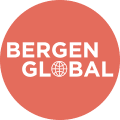


A joint initiative between the University of Bergen
and CMI – Chr. Michelsen Institute
Fires in Moria

The multiple fires that broke out in the refugee camp Moria – on the Greek island of Lesvos -, the night of 8 September have left 13,000 people in a situation of utter destitution for several weeks. This tragedy is the culmination of a long list of fires, riots and demonstrations by the migrants and refugees from Moria, in the face of the Greek government’s border control regime – supported by the European Union.
Although illegal migration in the Mediterranean has been a structural phenomenon since the late 1980s, Lesbos has been in the last years one of the main epicenters of a violent phase of mobility control and militarization. European institutions and the Greek state have reinforced wide-ranging measures to police, criminalize, and deport those populations already within its territories, especially those understood as undeserving of protection, in terms of race and nationality. Along these lines, the deal struck between the EU and Turkey in March 2016 has made the island a prison for thousands of migrants who have been trapped. Thus, Moria became the largest refugee camp in Europe and the symbol of a renewed border externalization efforts by the European border regime – which is seeking to regulate the mobility by funding detention centers for migrants, militarizing the sea and undermining the individual right to asylum.
1) Humanitarian actors such as the Movement on The Ground organization, that provide material and emotional care to displaced populations through policies of care and solidarity in precarious life contexts.
2) The lawyers of Legal Centre Lesvos, who provide guidance and legal support to thousands of people in opaque and repressive contexts of deprivation of rights, who are discriminated mainly in terms of nationality and race.
3) Academics and activists who have carried out research with migrant and refugee populations, analyzing from a critical and ethical perspective the power structures of border regimes as well as the forms of solidarity organization in these contexts.

